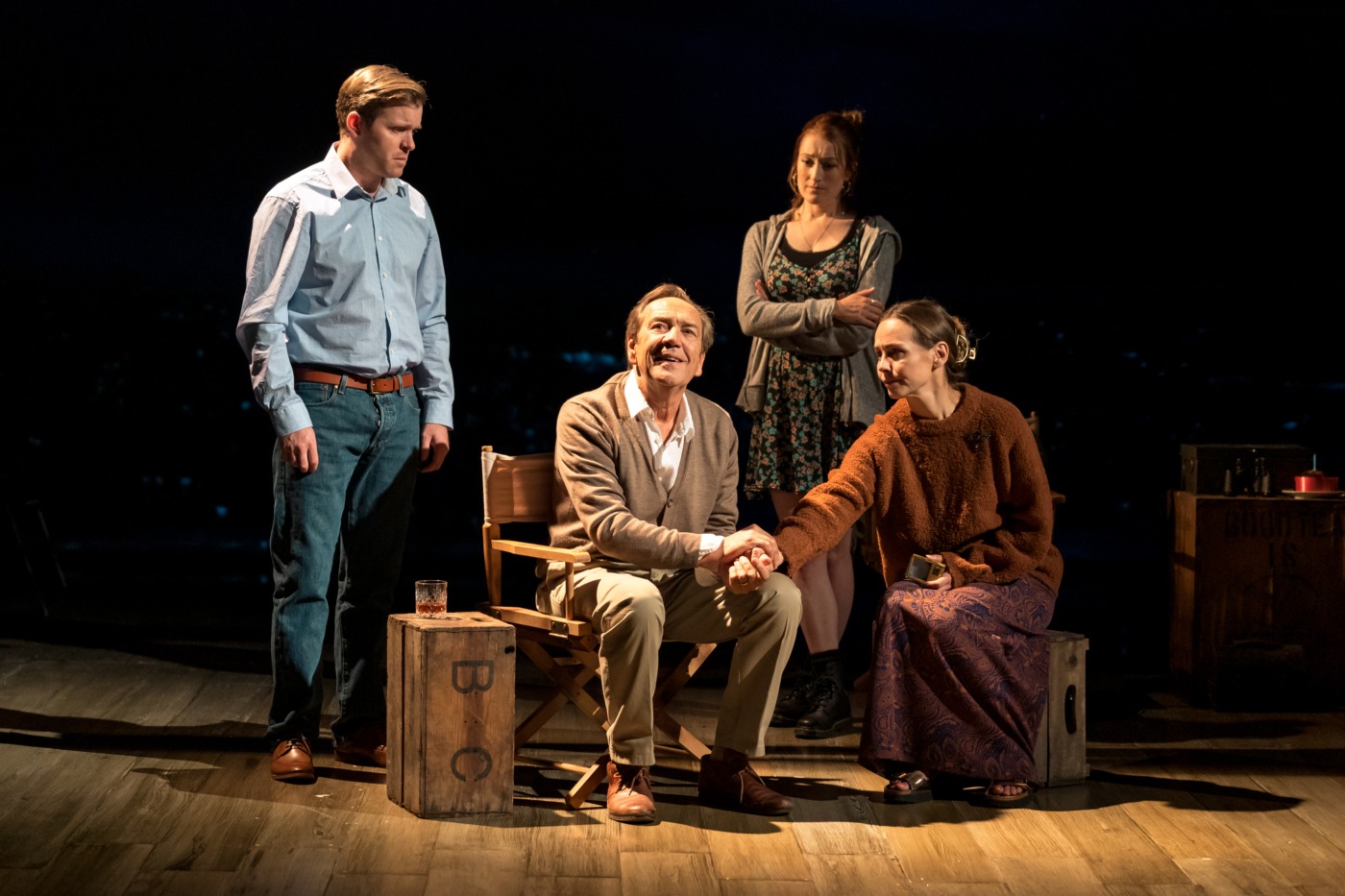“A reminder to walk in the light”: a review of ‘Prism’
Prism is a play centered around a man who enjoyed “painting with light”, a feat usually reserved for the divine. Terry Johnson’s play, about celebrated cinematographer Jack Cardiff, is a simultaneously heartbreaking and hilarious story about Jack’s descent into dementia and his remarkable past. Both emotions are undeniably entwined in this play, as Jack’s son Mason struggles to capture his father’s illustrious career on paper before it is lost, along with his father.
Jack Cardiff himself is played by the talented Robert Lindsay. Lindsay is so charismatic that in the rare, fleeting moments that he leaves the stage, there’s a sense of something absent. He also manages, similarly well, to convey this absence as an aspect of Jack’s personality: a charming vestige of old Hollywood, beginning to become increasingly checked out from his own reality. The audience shares Jack’s frustration as he swings from a confident, commanding, filmmaker to a confused, mentally ill pensioner, wanting to live in the past rather than in the present. Or if not in the past, then in the pub – if he remembers the way, that is.
If it’s written well with a real understanding of human nature, comedy and tragedy go hand in hand
Robert Lindsay
I had the opportunity to speak with Robert Lindsay after seeing Prism, and asked him some questions about the play.
Is it difficult to achieve that balance between comedy and tragedy? Jack is the character that walks that line the most.
“It has to be in the writing. If it’s written well with a real understanding of human nature, comedy and tragedy go hand in hand.”
What’s your favourite moment in the play? Favourite line?
“Favourite moment in the play when Marilyn’s picture comes to life and her words as Lucy: ‘if only I could be the way you made me look’.”
Did knowing the family in real life make it easier or harder to portray Jack? Did you feel more pressure to accurately capture him?
“The play is a fictional look at the Cardiff family and bears very little resemblance to Mason or his mum Nicky. This is a play purely in Jack’s jumbled imagination. Bit like my own!”
Oliver Hembrough plays Mason with an endearing mix of exasperation and love
Terry Johnson and Tim Shortall’s set cleverly lends itself to this “jumbled imagination” and the idea of being stuck in the past, as the walls are adorned with portraits of the women Jack “made beautiful” (Marilyn Monroe, Katherine Hepburn and more). The portraits are animated and in brief, fleeting moments, laugh or smile as Jack speaks about them. It aids the audience in understanding the duality in Jack’s mind, what’s real to him – but only him. This is further made real in the absorbing set change in Act 2 – as the jungle Jack speaks about, where he filmed The African Queen, becomes a reality as the backdrop changes from red brick to a bustling green rainforest.
Mason, Jack’s son, desperately tries to keep him in the present and out of the jungle. Oliver Hembrough plays Mason with an endearing mix of exasperation and love, not quite managing his eccentric, foul mouthed father. One point of emotion within the play is their father-son relationship, often used for comedic effect, as we see when Mason and Jack have an argument – only for Mason to leave and for Jack to immediately ask, “Who is that?”. It’s an amusing moment, with great comedic timing from Lindsay, but also speaks volumes of Jack’s deteriorating mind.
The fleeting nature of light, and life itself, is emphasised in this play about a man who lived, as Mason puts it, ‘one hell of a life’
Often in the play, the pitfalls of Jack’s dementia are told in a witty, comical way and used to tell us about his past. Mason appoints a dementia carer, Lucy, played by the talented Victoria Blunt, who declares to Jack: “films are bollocks”. Lindsay’s look of pure disgust has the audience laughing, but it also allows him a startling moment of clarity as he speaks lovingly about “her”: the large, vintage camera ever present on stage. It also allows him to later utter the profound line “life is temporary, film is forever.”
Another poignant relationship in the play is that between Jack and his wife, Nicky, played by Tara Fitzgerald. While Fitzgerald’s American accent wavered, her portrayal of a desperate wife, facing the prospect of being left only with the physical form of her husband, is superb.
Overall, Prism is a reminder to walk in the light. The fleeting nature of light, and life itself, is emphasised in this play about a man who lived, as Mason puts it, “one hell of a life.” I was lucky enough to see the play’s 2017 run, and having seen it twice now, I would happily see it a third time.
Prism is at the Birmingham Repertory Theatre until 12 October. Tickets are available here.

Comments